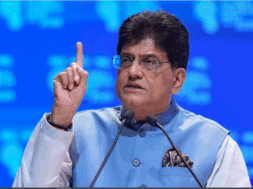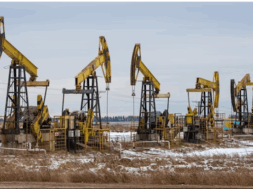
Roving Periscope: Squeezed by the West and China, Russia turns to India for succor
Virendra Pandit
New Delhi: Within 20 days after it invaded Ukraine on February 24, Russia’s economy is facing its deepest financial crisis since the 1991 collapse of the Soviet Union, forcing it to turn to its old friend India for help: it has urged New Delhi to import additional oil and gas and invest more in Russia’s energy sector.
An energy-rich Russia’s economy heavily depends on the export of oil and gas and fresh sanctions are biting it.
With the severe and tightening sanctions imposed by the West and its allies—and now China refusing to provide spare parts to its aviation sector—Moscow has urged India to increase its investments in the Russian oil and gas sector and is also keen on expanding the sales networks of Russian companies in Asia’s third-largest economy, the media reported on Saturday.
After New Delhi abstained from voting against Moscow seven times at different bodies of the United Nations, the West is trying to persuade India to condemn Russia’s actions in Ukraine.
The US has completely banned the import of Russian oil from March 8 and Britain said it will phase them out by year-end. Germany has also plugged natural gas supply from Nord Stream 1 pipeline. These drastic decisions may further disrupt the global energy market, where Russia is the second-largest exporter of crude.
“Russia’s oil and petroleum product exports to India have approached USD 1 billion, and there are clear opportunities to increase this figure,” said Russia’s Deputy Prime Minister Alexander Novak,” according to a statement released by Russia’s embassy in India late on Friday.
“We are interested in further attracting Indian investment to the Russian oil and gas sector and expanding Russian companies’ sales networks in India,” Novak told India’s Minister of Petroleum and Natural Gas Hardeep Singh Puri.
Their conversation came after reports that Russia has offered India discounts on crude oil imports after it lost major buyers in the past two weeks. The U.S., the European Union, and other countries’ sanctions have adversely affected Russia.
The European countries have exempted Russian banks involved in energy trade from their sanctions because of their own heavy dependence on Russian oil.
After these sanctions, Russia lost the U.S. imports of about 700,000 barrels of oil per day and could see a reduction of European current intakes of 4.5 million barrels a day. It cannot stop production and will be left with unsold stocks if it does not find new buyers. In 2020, Russia produced about 12 percent of the world’s oil and about 16 percent of the natural gas.
The sanctions have triggered a sharp spike in oil prices, crossing USD 139 per barrel recently. At present, the prices remain over USD 100 per barrel, causing a global scare over inflation.
India’s state-run companies hold stakes in Russian oil and gas fields, while Russia’s entities, including Rosneft, own a majority stake in Indian refiner Nayara Energy (formerly Essar Oil). Some Indian companies also buy Russian oil.
Meanwhile, China has refused to supply Russian airlines with aircraft components and spare parts, officials said. Already, Boeing and Airbus had halted the supply of components. This is bringing the Russian aviation industry to a grinding halt and officials have warned that the safety of Russian passenger flights could not be guaranteed. Russia is now looking to India and Turkey for help.
Finance Minister Nirmala Sitharaman was quoted as saying that Russia had made an “open offer” to India to sell crude oil at a discounted price. However, many factors would decide the government’s final decision, like transport routes, payment channels, and insurance costs for the shipments.
The decision to purchase more oil from Russia would also have to be weighed against the adverse reaction from the US and Europe who want to “isolate Russia” economically.














